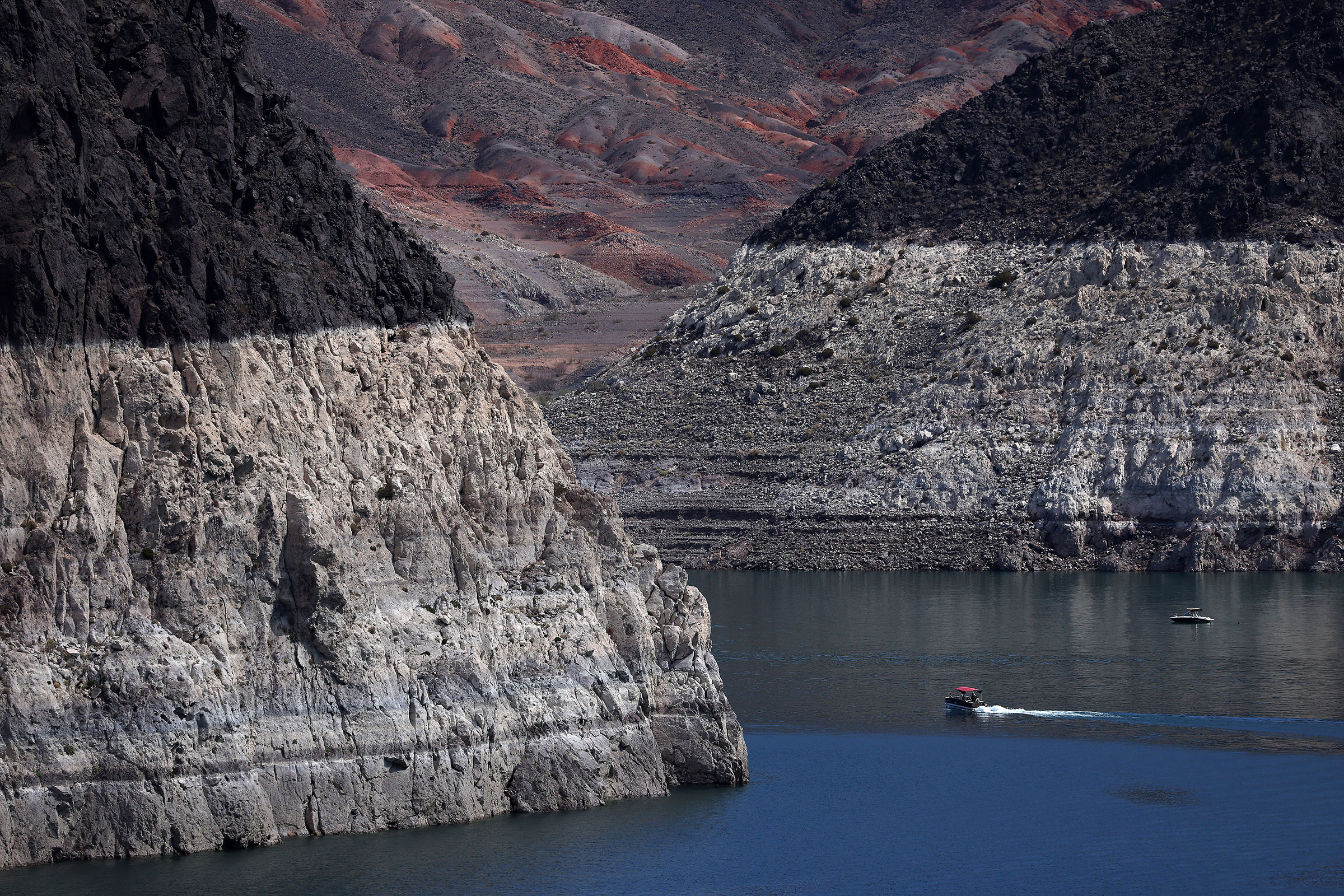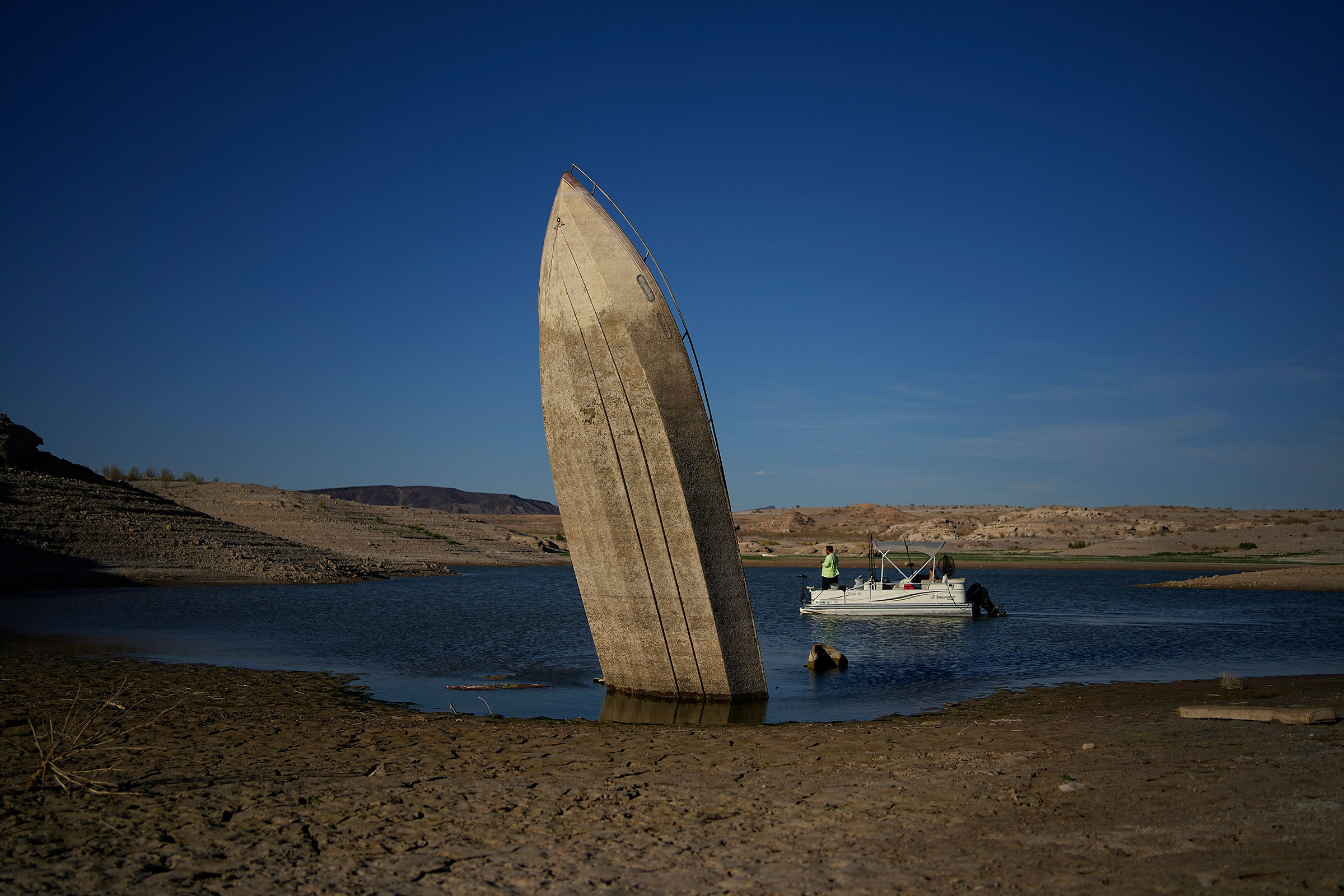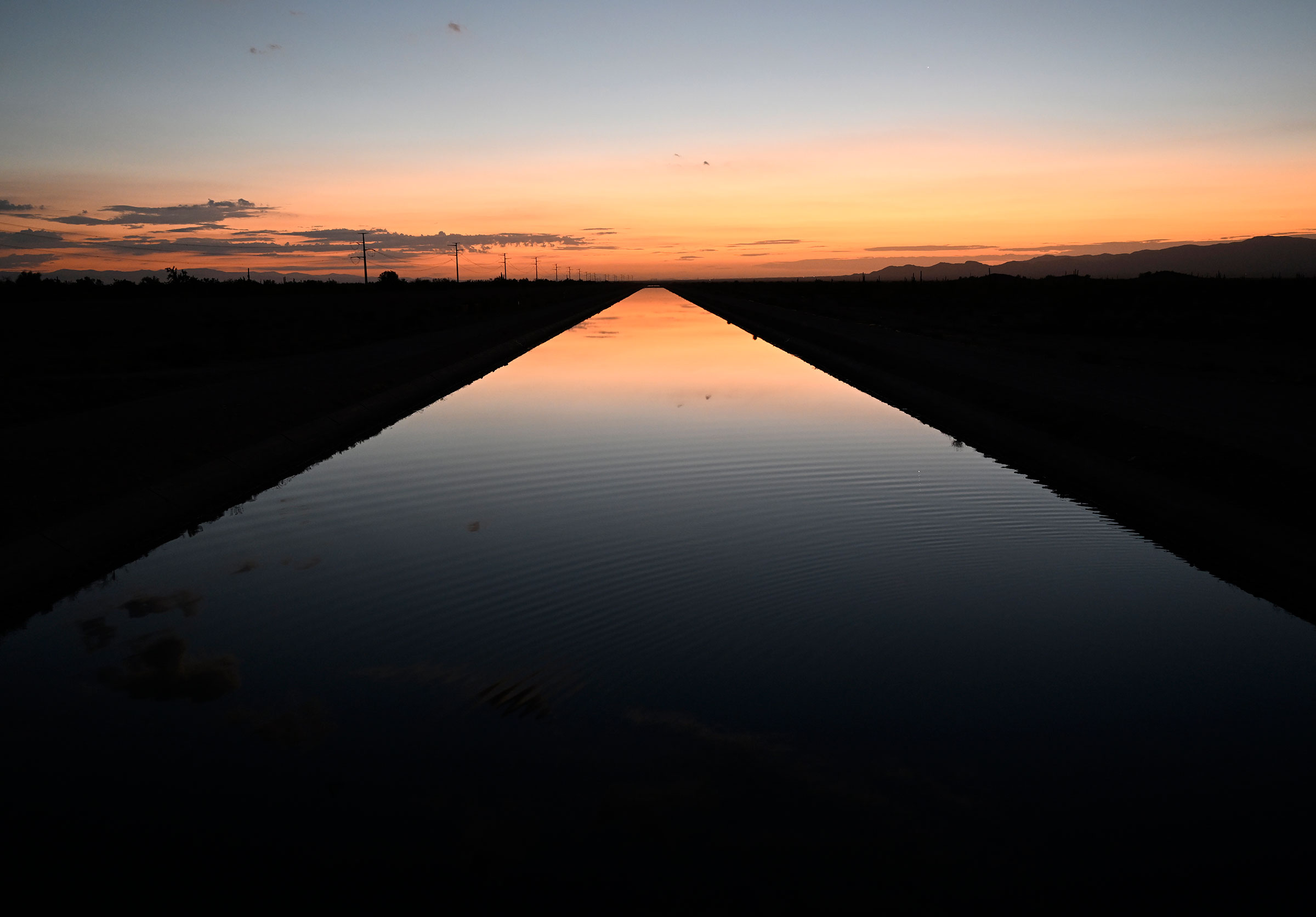
There’s something familiar about the high stakes water use drama playing out in the U.S. Southwest.
The mighty Colorado River serves as an economic artery of the region, powering massive hydroelectric dams and supplying water to farmers and rapidly growing cities across the region. But continued overuse during a massive yearslong megadrought—the driest stretch the area has experienced in more than a millennium—has caused water reservoir levels to fall to unprecedented lows, imperiling water supplies and the operation of crucial power plants.
Seven states rely on water from the Colorado River: Colorado, Wyoming, Utah, New Mexico, Arizona, California, and Nevada. In June, the federal government told them they had 60 days to come up with a plan to massively scale back their consumption. Last week, that deadline came and went with no agreement. And though the federal government did announce a new round of water cuts mandated in a previous drought plan—21% for Arzona, 8% for Nevada, and 7% for Mexico, which also relies on the river— it didn’t follow through on its threat to impose more severe water cuts in the absence of state action. This means reservoir levels will likely continue to fall, risking severe electricity and water shortages across the region.

The drought behind the problem is no fluke—human-caused climate change is a significant part of the problem, with higher temperatures causing more runoff from rain and snow to evaporate before it reaches the Colorado River. At the same time, it’s hard not to see the situation on the river as something like a smaller, sped-up version of the global climate crisis, with state governments and the feds delaying action and pointing fingers as the situation they are meant to be addressing grows ever worse.
A version of this story first appeared in the Climate is Everything newsletter. To sign up, click here.
As with climate change, the water problem is less technical than political. State governments want to protect the water rights crucial for agriculture and expanding housing development. And no governor is likely to get kudos from voters for magnanimously stepping up to take on a big share of the cuts. In theory, federal threats should force action—states would rather hash out a deal themselves than let Washington decide who gets what share of the river’s dwindling flows. But that only works if the Biden Administration is willing to make good on its word, and anger Southwest voters—a hard pill for Democrats to swallow heading into a tough midterm election.
That’s not so different from the international climate situation, where despite lofty promises, most countries are still delaying much of the difficult, urgently-needed action to cut emissions and stave off disaster (though the U.S. passage of the largest climate bill in history last week offered a welcome reprieve). In both cases, leaders are playing a game of chicken in the face of looming disaster. Everyone is holding out on hard decisions, hoping most of the costs will fall elsewhere, all while the actual problem gets worse for everyone.

Both calamities have near-term consequences, but the bitter bargaining over who makes what sacrifices is likely to play out on a radically shorter timescale in the Southwest, where the price of inaction will hit powerful players like the agricultural sector hard and fast. Whether the region’s authorities hash out the mess or else walk hand-in-hand into disaster could give us an idea of how the global climate fight will play out among the world’s biggest polluters—whether international leaders will take dramatic action before the worst crises begin, or wait to see what kinds of new, escalating peril will make the tough decisions for them.
More Must-Reads from TIME
- Donald Trump Is TIME's 2024 Person of the Year
- Why We Chose Trump as Person of the Year
- Is Intermittent Fasting Good or Bad for You?
- The 100 Must-Read Books of 2024
- The 20 Best Christmas TV Episodes
- Column: If Optimism Feels Ridiculous Now, Try Hope
- The Future of Climate Action Is Trade Policy
- Merle Bombardieri Is Helping People Make the Baby Decision
Write to Alejandro de la Garza at alejandro.delagarza@time.com